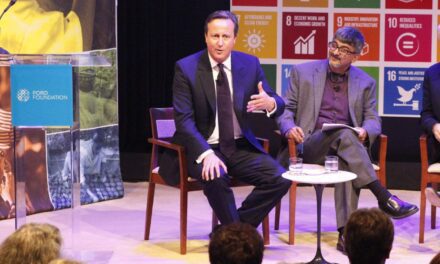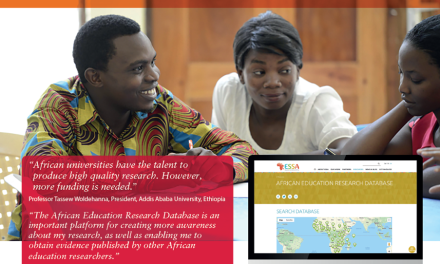This blog was written by Maia Chankseliani, University of Oxford and Chair of UKFIET Executive Committee.
Youth mobility, once taken for granted between Britain and Europe, is now the subject of cautious negotiation. On 19 May 2025, London and Brussels are set to convene a summit to discuss a youth mobility agreement for 18- to 30-year-olds, encompassing work, study, internships, and other purposeful stays. While no final decision is expected at the summit itself, it is seen as an opportunity to establish a mutual commitment to negotiations. The European Commission has proposed an agreement that would allow eligible individuals to stay for up to four years, with equal treatment regarding fees and health coverage. The UK government’s research briefing has already assessed the “Potential merits of a Youth Mobility Scheme between the EU and the UK”. Recent reporting by The Guardian indicates that EU member states are prepared to make significant concessions, potentially limiting work visas to as short as 12 months, introducing quotas on participant numbers, and applying restrictions to specific sectors. The proposal may also include a ‘one in, one out’ approach under consideration by the Home Secretary. Regardless of the final agreement, the UK has substantial benefits to gain from such a scheme.
Our research at the University of Oxford, involving 704 individuals from 70 countries, points to a consistent pattern. International mobility exerts a considerable positive influence, not only on individuals but also on the institutions, communities, and workplaces to which they return. Critically, our findings show that the impact of mobility is tangible in economic performance, organisational innovation, and civic resilience. Mobility nurtures habits of critical reflection, adaptability, and outward-looking engagement, traits that travel with individuals and quietly reshape their environments over time. When returnees launch new enterprises, introduce new teaching methods, start social ventures, reform hospital practices, or modify the services their firms offer, these shifts are often rooted in the dispositions and insights acquired abroad. The individual journey matters, but it matters most because of its transformative effects across systems. These broader patterns become most visible when we trace them through individual experiences.
First, spending meaningful time abroad equips individuals with specialised knowledge and practical skills that they could not have easily acquired at home, shaping their capacity to innovate upon their return. A vivid example comes from an environmental psychologist from the Netherlands, who travelled to New York in the early 1990s for an internship and later doctoral study in a field she reported was virtually unknown in her country at the time. She explained that environmental psychology was not taught at Dutch universities, and the idea that design could influence wellbeing was met, in her words, with “scepticism and even ridicule.” In contrast, she described encountering a thriving academic community in New York, where she learned to conduct real Post-Occupancy Evaluations (POE), gathering and analysing empirical data on how environments affect users. Reflecting on the experience, she recalled: “To do it with a team, conduct a real POE and to go through all the statistics. And those were skills that I definitely learned in the US.” Equally significant, she noted, was the confidence she gained from working alongside respected scholars who validated her interests — confidence she saw as critical: “Without that, I would not have survived the resistance in my country.” Upon returning, she applied these skills to initiate a new approach to hospital design, senior care, schools, prisons, and urban spaces. Her story reminds us that international mobility is often not simply an opportunity to learn more, but sometimes the only pathway to learn at all.
Second, immersion in a different society often deepens intercultural understanding in ways that reshape an individual’s capacity for contribution at home. One former British politician described how her Erasmus year in Madrid, combined with later short-term programmes in the US, Jerusalem, and Geneva, shaped her perspective and habits of engagement. She recalled her time in Spain as formative, explaining: “I really value the fact that I can speak … the Spanish language, that I have been immersed in the culture of one of our European neighbours.” She reported intentionally socialising with locals, adapting to new daily rhythms, and embracing cultural differences such as later mealtimes. This early habit of integration, she suggested, expanded her sense of the world and strengthened her ability to collaborate across political and institutional divides later in her career. Reflecting on her broader international experiences, she explained: “All of them. I think every single time. All of those experiences … made me more rounded.” She reported drawing directly on this intercultural sensitivity during her parliamentary work, particularly in supporting UK-Spanish connections and contributing to international debates. Her account illustrates how intercultural understanding, once acquired, can become a resource for cross-national collaboration and public engagement.
Third, cross-border experiences help to strengthen and sustain international social networks that individuals draw upon after they return home. Our findings show that purposeful mobility experiences often sharpen the willingness and ability to initiate relationships across unfamiliar settings, building networks that later channel knowledge, support, and credibility. One German financial executive described this process. Reflecting on his Fulbright experience in the US, he explained: “You have to go out to adapt to those things. And then when you come back, because [of] this extraversion, [you] easily interact with foreigners.” His account points to a deeper insight: mobility does not only enhance social skills abroad, it recalibrates interaction patterns at home, allowing returnees to bridge linguistic, cultural, and professional divides more fluently. In his case, these networks proved critical for navigating international corporate environments in Germany’s finance sector. He reported that his capacity to integrate foreign colleagues and trainees stemmed from his earlier immersion abroad. Such global social connections do not simply enrich individuals; they enhance the competitiveness of the organisations and economies they serve.
Fourth, time abroad often shapes an individual’s civic understanding, deepening their sensitivity to differences in values, the meaning of public life, and the subtle social practices that bind or divide communities. One British artist, who spent a year in the US in the early 1980s, reported that his time abroad profoundly influenced his awareness of civic values. Reflecting on the experience, he explained: “I think what I started to think about more in America was the huge gamut of different civil values, the differences between people’s thinking, it was not homogenous.” He described learning, through hundreds of conversations, that seemingly opposing civic beliefs could coexist without necessarily becoming hostile or binary. This insight, he explained, shaped both his artistic strategies and his later societal contributions. Upon returning to the UK, he reported that he pioneered socially-engaged art practices, aiming to create spaces for dialogue across communities. Through participatory installations, he sought not merely to exhibit but to “change things” by encouraging new encounters between art, civic space, and everyday life. His account reminds us that civic learning abroad often begins with observing, and that the lasting accomplishments it inspires may emerge from patient, everyday efforts to connect. In a fractured world, the ability to mediate differences with curiosity rather than fear will only grow in value.
Finally, sustained mobility experiences often seed a particular kind of agency: the confidence to step beyond established roles and invent new ways of contributing to society. One British entrepreneur in women’s health described how frequent exposure to different cultures from a young age helped her to build the courage to challenge professional expectations. She reflected: “It is not as scary to walk into a new community and speak to them.” Growing up mobile, she explained, normalised the act of crossing into unfamiliar spaces, of tackling different societal structures without paralysis or fear. Later, this experience translated into a bold decision: leaving academia to start a social-impact company aimed at transforming women’s health education and access. She recounted how difficult that transition was, describing it as “like being thrown into the deep end and no one has taught you how to swim.” Yet she persisted, using the same adaptive agency she had developed through her earlier mobility. Her story points to a broader pattern in our findings: when mobility is sustained and meaningful, it does not only develop skills or expand networks. It shapes the deeper dispositions—courage, adaptability, persistence—that enable individuals to redefine what is possible in their home societies, and to catalyse innovation that responds to local needs while remaining globally informed.
International mobility is no panacea. Yet the weight of evidence—supported by the lived experiences quoted here—shows that when governments make purposeful cross-border opportunities affordable and predictable, individuals acquire capacities that communities, institutions, and societies subsequently draw upon.
What do these findings suggest for the proposed UK–EU Youth Mobility Scheme? They indicate that cross-border work and study are not merely about individual opportunity but about societal investment. When young people are given opportunities to study, work, or train abroad, they are not only building their own futures. They are also acquiring capacities that will feed directly back into their communities, institutions, and the national economy. In a period when boosting productivity, enhancing competitiveness, and strengthening resilience are urgent priorities, youth mobility is not a luxury; it is a strategic lever. A scheme of this kind can become a quiet engine for innovation, cohesion, and democratic vitality. If Britain and the EU can build a youth mobility framework that is reciprocal and socially rooted, they will be investing in far more than travel. They will be investing in a generation capable of thinking across boundaries, contributing across sectors, and strengthening their societies.






YOUTH THAT DO NOT GO BEYONG THEIR SOCIAL-CULTURAL MAKE-UP ARE BOUND TO BE LIMITED IN INNOVATIOIN; THEREFORE YOUTH MOBILITY IS PARAMOUNT FOR SOCIAL AND ECONOMIC DEVELOPMENT.